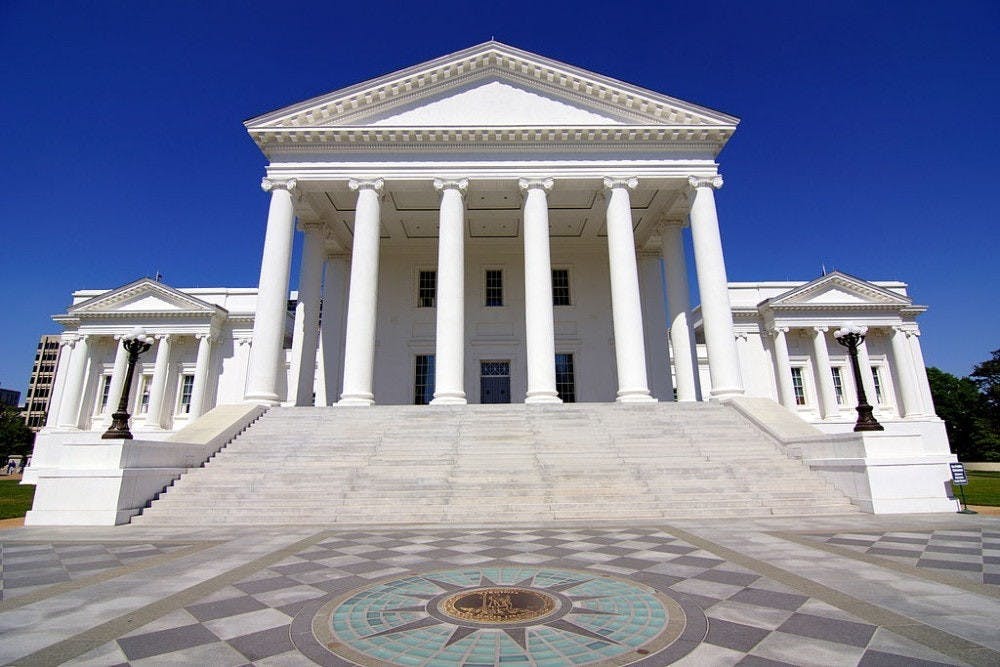For the first time in our University’s history, the Board of Visitors voted to freeze in-state tuition rates, which will save the average in-state student around $400. While significant on its own, this event is not an anomaly but is occurring at public colleges and universities across the Commonwealth. This flurry of tuition freezes is the direct result of work done by the Republican-controlled Virginia General Assembly and is proof that smart policy at the state level can have a direct impact on the lives of students.
The tuition freezes occurring at Virginia’s public colleges and universities are a result of over $52 million allocated in the General Assembly’s budget deal, of which the University will receive over $5.5 million. Instead of simply giving this additional funding to schools across the Commonwealth, the budget instead called for it to be granted “so long as [colleges] maintain tuition and mandatory Educational and General (E & G) fee charges for in-state undergraduate students to fiscal year 2019 levels.” Among other public institutions that have accepted the funding-for-freezing deal are Virginia Tech, James Madison University, George Mason University and Virginia Commonwealth University — no school has declined the offer yet.
While the $5.5 million that the University will receive in return from their tuition freeze was less than the projected $13 million it would have made off of the tuition increase, the Board of Visitors chose to freeze tuition levels nonetheless. If the General Assembly had simply allocated this funding to the University, the Board of Visitors would have had no incentive to freeze tuition. They easily could have taken this additional funding from the state and chosen to raise tuition rates anyhow. By tying this funding to the goal of saving students money on tuition and fees, the General Assembly was able to use public funding in the best interest of in-state students and save them from paying higher tuition next year.
Not only did the General Assembly effectively use the incentive of additional funding to freeze tuition rates across the Commonwealth, they chose to do so at a time when it was fiscally feasible and necessary for students. The General Assembly had a surplus of $2.2 billion that they did not expect to have previously, with about $1.2 billion of this windfall being a result of Federal tax reform in 2017. This made it feasible for the General Assembly to allocate funding for many different initiatives in this year’s budget. Furthermore, students are in dire need of a tuition freeze, with Virginia students borrowing over $1 billion every year. Though students are generally always in favor of tuition freezes, the General Assembly delivered one at a time when it was not only practical but necessary.
It is also worth noting that these tuition freezes and the state budget as a whole are primarily the result of House Speaker Kirk Cox (R) and Republican leadership in the General Assembly. Budget negotiations were underway and occurred during the height of Ralph Northam’s (D) scandal when a racist photo was found in his medical school yearbook. Because of this scandal, Governor caved on these negotiations, and the budget “[did] not include any of the spending that Northam proposed in the budget plan he introduced in December.”
The result was a budget that matched the priorities of General Assembly Republicans, and all 51 Republicans in the House of Delegates voted for the tuition freezes. In addition to this legislation, the General Assembly allocated an additional $16 million for financial aid and mandated a public comment period before a public institution raises tuition in the future. These pieces of legislation not only make education more affordable for Virginians but also make future tuition hikes more transparent.
These achievements by the Republican majority in the General Assembly are proof of how state politics in Richmond can tangibly impact the lives of students across the Commonwealth. In a party that often is criticized for not reaching out to or caring about younger voters enough, the Republicans in the General Assembly are attempting to break this stigma. While there is still more work to be done, students can thank Republicans in the General Assembly for the first ever tuition freeze in the University’s history, and they would do well to remember who delivered it during statewide elections in November.
Adam Kimelman is an Opinion Columnist for The Cavalier Daily. He can be reached at opinion@cavalierdaily.com.







